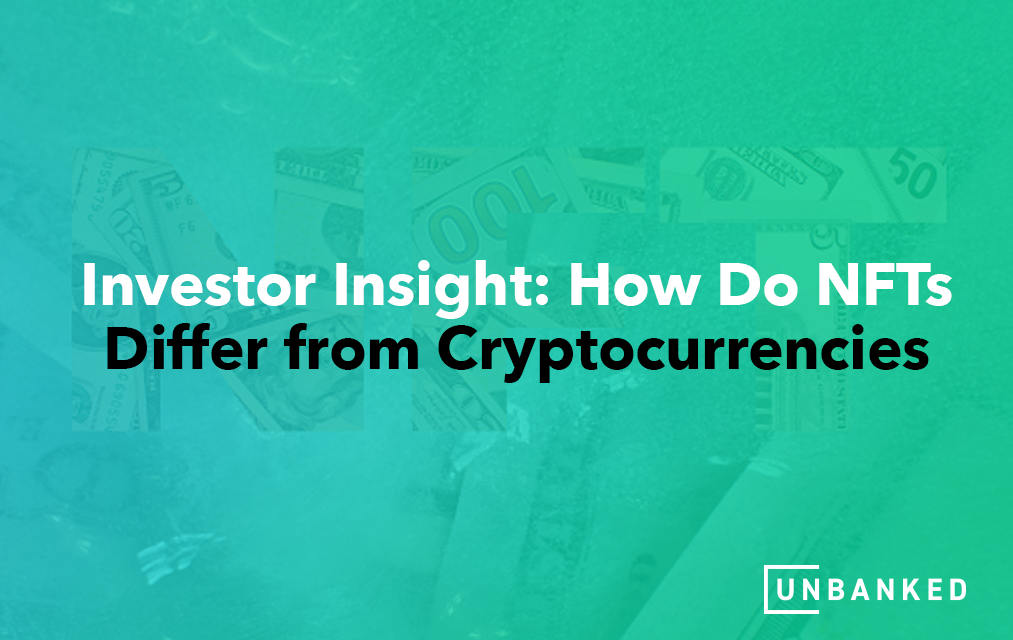A typical confusion is that NFTs are a sort of digital currency. The similarity between crypto and NFTs is that the two of them have a stored record on a blockchain. The similarities end there. With NFTs, every token has a unique worth and can’t be traded for another of equal worth. With cryptocurrency, you can trade one Bitcoin for another because the value remains the same. Each token of equal worth can be traded for another. Cryptocurrency is digital money that is non-state administered, decentralized (shared), and open-source based. Open-source software allows the formation of a private currency and a platform for users to make payments in that virtual cash.
What Is an NFT?
Non Fungible Tokens are unique digital assets representing real-world items, for example, photographs, music, recordings, and exchanging cards. They can be managed through a distributed ledger which is purchased and sold on the web. For instance, instead of buying a genuine photo to display on the wall, the purchaser gets a unique digital file. Almost any digital asset, like a piece of collectible digital characters, virtual land, or unique web-based media posts, can be made and bought as an NFT.
Each transaction on a blockchain is recorded on a distributed ledger, which publicly records each NFT exchange to substantiate who owns the digital item. Most NFTs exist on the Ethereum blockchain. Like Bitcoin, the Ethereum blockchain creates permanent digital records of each transaction that uses that digital money. It additionally makes an indisputable record of all the NFT transactions. The NFT creator keeps the copyright for the item and the right to duplicate it as many times as they need. Although the creator might make various duplicates of the original item, the buyer has to get authorization from the creator to make multiple copies of the purchased NFT. Then each copy will be considered a unique NFT.
An NFT can only have one official owner at a time, and when you buy an NFT, it becomes your legitimate property. Since the records are kept in blockchain, NFT is safer than a typical digital transaction. This renders the public record ‘unhackable’ and helps battle misappropriation. To exchange an NFT, one of the requirements is to use cryptocurrency. Creating, or in fact, talking ‘minting,’ an NFT requires a digital wallet that is compatible with the marketplace you wish to create your NFT on, after which, you can upload a file you want to ‘tokenize.’ Such tokens are constructed using a similar sort of programming as a digital currency. Creation might include fees to the platform. Similarly, when a purchaser buys an NFT, it may also incur a ‘transaction fee.’
NFT vs. Cryptocurrencies: Uses and Benefits
There are many use cases for NFTs. In the first place, selling an NFT can offer considerable advantages to the artist. For instance, in March, the band Kings of Leon sold unreleased music through an NFT. The advantage to the band is if Kings of Leon offers an NFT to one owner and limits the digital reproduction, they can get royalties and control the dissemination of their item. The NBA is also investing in projects to sell NFTs and will sell chips in NFT forms. This will not give owners the right to resell, but they get to brag about their ownership of the chip. However, you would exchange it and financialize it — like a better way to exchange sports cards. NFTs will probably grow in popularity due to the idea of uniqueness, i.e., giving ownership to something that nobody, in principle, could have access to without the owner’s decision to imitate. Though artworks, baseball cards, and other such works can be easily replicated, NFTs give genuine sole possession, which is interesting to many. Also, more NFTs will continue coming, as blockchain becomes a popular way to prove ownership. NFTs have become another asset class supporting cryptocurrency and blockchain growth.
On the other hand, cryptocurrency is a digital currency that can be used to buy goods and services that use a secure distributed ledger to secure online transactions. It is based on the decentralized blockchain network. Cryptocurrencies make transactions easier, faster, and more secure. These transactions are pseudonymous, i.e., transactions can only be verified using blockchain addresses. The decentralized nature of cryptocurrencies makes them independent of any government or central bank authority. Cryptocurrencies enable users to make and receive payments to and from anyone over the network. Additionally, the absence of a centralized authority lowers international transactions making them ideal for sending remittances. Besides that, many payment gateways like VISA and MasterCard are partnering with major cryptocurrency companies to issue crypto credit and debit cards that allow users to use their crypto and earn rewards.
The Bottom Line
NFTs have the potential of giving impetus to a new generation of artists, musicians, and digital content creators. The use of NFTs eliminates the role of agents and intermediaries, which allows artists to sell their artwork directly on the marketplaces without the involvement of agents. NFTs have become one of the hottest crypto patterns of 2021, within general sales up 55% already since 2020, from $250 million to $389 million in March 2021. Both NFTs and cryptocurrencies are powerful vehicles of investment and exchange. They are not competitors; instead, they exist side to side, complimenting each other. They both have their advantages and uses, which are very different from each other. For the investors looking for exposure to the crypto asset class, investing in NFTs might seem like a good idea. While these new opportunities are exciting, investors should remember there is a risk of picking the wrong NFT. They must ensure that the transaction is safe and understand the underlying value of NFT itself. Get your homework done before purchasing an NFT, and in case you don’t know which one to purchase or invest into, hold tight for some time as the space matures. To learn more about NFTs and cryptocurrencies, read our blog.





